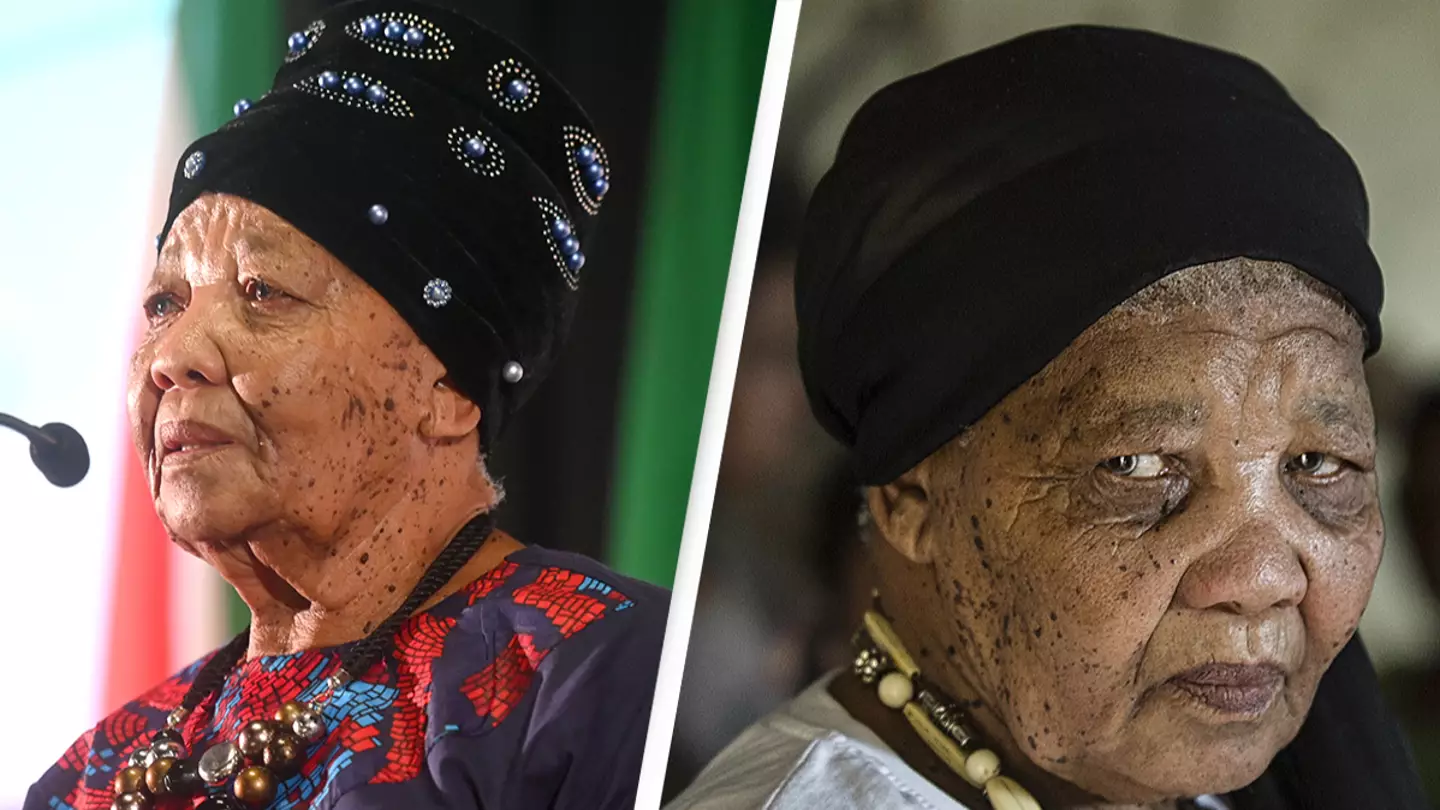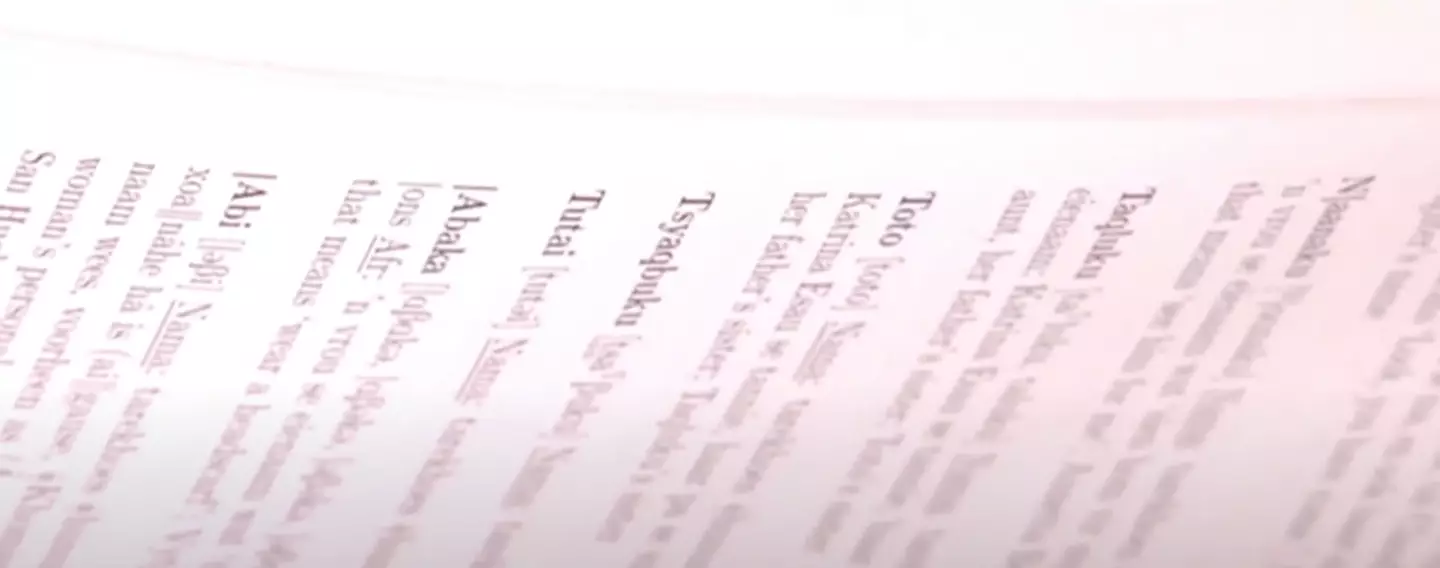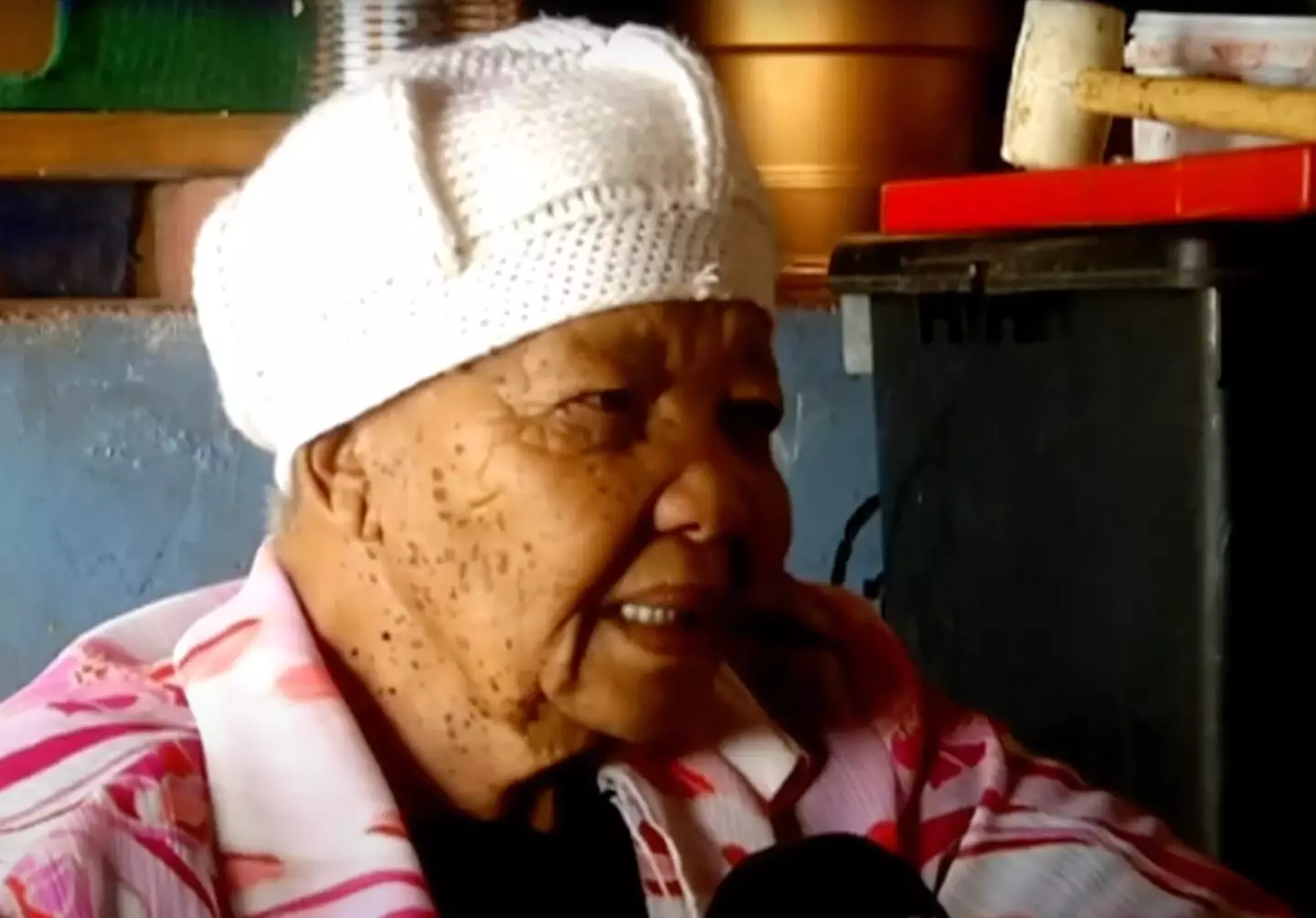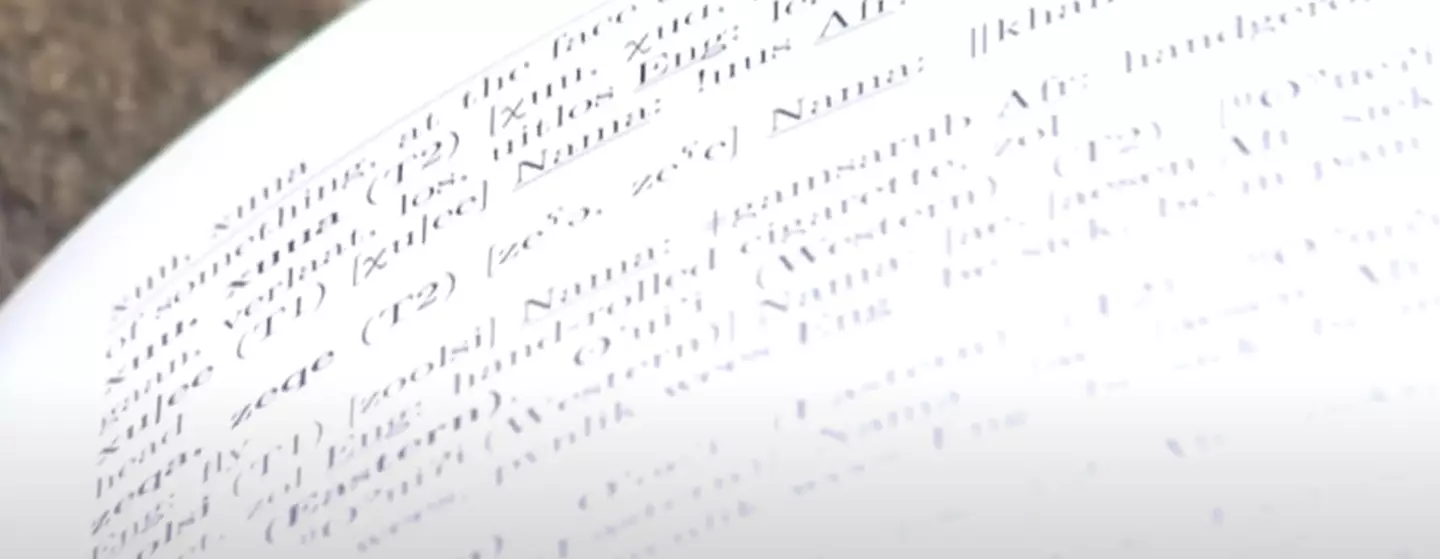
A language that has been around for more than 20,000 years is at risk of becoming extinct.
N|uu, pronounced with a clicking sound between the 'N' and the 'uu', is the most endangered language in the entire world with a population of fluent speakers currently sitting at one - Ouma Katrina Esau.

It is a click language that derives from the San people, who are members of any of the indigenous hunter-gatherer cultures of southern Africa.
Advert
It originated from the ǂKhomani people who hailed from southern Kalahari, a savannah on the modern-day borders of Botswana, Namibia, and South Africa.
There is very little written evidence of the language in history due to it being spoken, as well as its people being beaten and even killed for using it by the British Empire when they arrived with the goal of colonizing Africa in the 19th century.
It drove the language underground with many people unwilling to speak it in public - that was until the 1990s when Dr Nigel Crawhall, a sociolinguist, and the United Nations in a bid to unearth it.
A grand total of 25 people came forward saying they were fluent in N|uu, but by December 2021 only Esau remained.
Advert

African Tongue, a professional linguistic consultancy that collaborates with contemporary speakers of the endangered languages of Ju, Tuu and Khoe, in southern Africa, to produce creative and educational resources.
Linguist, and director of the organization, Dr Kerry Jones, spoke to IFLScience detailing the history of the language.
She said: “The 90s was a massive turnaround point and where people were starting to feel safe to come forward.
Advert
“We had these elderly people who were coming forward saying, ‘Look, I'm gonna die soon anyway, so it's okay. I'm gonna let you know: I’m not actually 'coloured', I'm San. And I can prove it because I can still speak the language.’ The language became key in proving their identity.
“People used to move through that whole region between South Africa, Namibia, and Botswana all the time. Then all of a sudden, these people came and started putting up fences and saying you had to have identification and passports.

“This was the beginning of the demise in a way because it's started to separate people. Their families were split up."
Advert
In a push to revive the language Esau has taught her granddaughter and has been working with Dr Jones to preserve the language by creating a digital dictionary of N|uu.
And since May, for the first time in decades the language is being taught to younger generations with Essau visiting local schools and teaching kids the basics of the click language.
Dr Jones added: “Her granddaughter, Claudia can speak the language. Not fluently, but as an additional language. But she's literate and Ouma Katrina isn't literate, so between the two of them, it's a good combination."
Topics: Africa, World News, Health